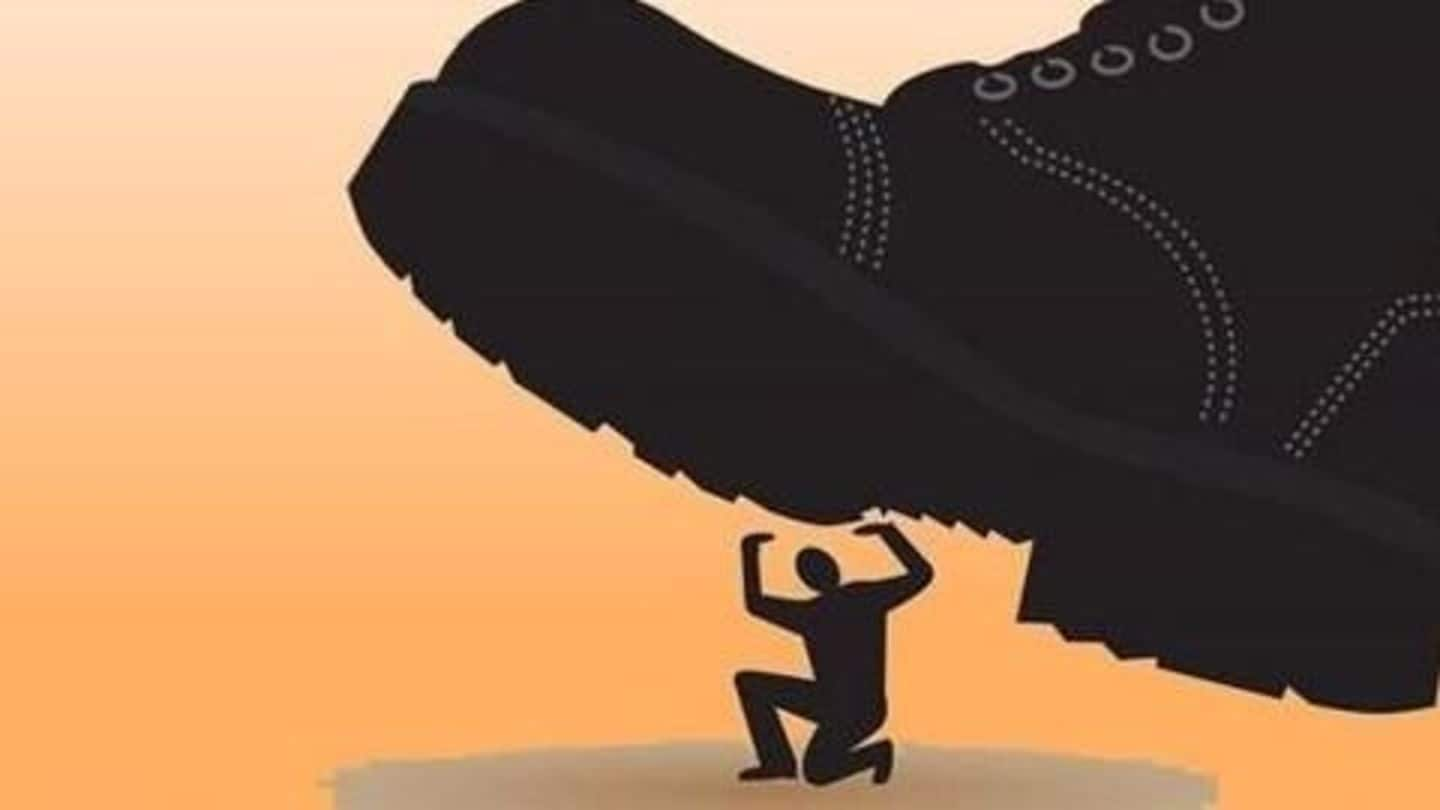
Use and abuse of power: The forces at play
What's the story
Power is an eagerly craved aspect of life today; from childhood, we are taught to run after success, wealth etc, all ways to achieve a powerful position.
However, it doesn't take long for people to cross the line and abuse their power.
What makes people fall prey to the temptation? We take a look at power dynamics to understand the internal forces at play.
Birth
How does one get power?
Some are born privileged: males and upper-castes in India automatically belong to the powerful class.
It is believed sons will carry on the family line and bring in riches. Most gender-based crimes are inflicted by men on women.
At many places, Brahmins refuse to sit with lower-castes.
Being born into an influential family also brings luxuries (think 'star kids' of Bollywood).
Work
More ways to get power
Other times, one has to work for it. A person who builds a company, or someone who has risen up the ladder in a political party, yields considerable power.
When ministers zoom through roads with sirens, or when Justin Bieber gets a security cover, we see examples of power achieved through work.
Close association with powerful people also might bring one certain privileges.
Information
The ultimate source of power in a capitalist society
Perhaps the most important weapon of power in today's capitalist world is money. One can't disagree that money is often enough to get things done, to get out of unpleasant situations, and to control the world around oneself to a large degree.
Paradox
The power paradox - Forming and breaking power
Herein comes a very intriguing paradox: we know that it is, in most cases, necessary to affect others positively - being helpful, generous, open-minded and the like - to rise to a position of power and influence.
But once one gets there, the very qualities that helped the rise vanish; one is instead left with selfishness, corruption and a lack of empathy.
Salman Khan
When power becomes a tool of oppression: Salman Khan
Our very own Salman Khan is an example. Though admirers laud him as generous, Khan has been hogging the limelight for being "brash and hot-headed".
One of the first reports surfaced in the 90s: he allegedly poured a bottle of Coke over his then girlfriend's head.
He also reportedly manipulated Vivek Oberoi's career for dating his ex, and manhandled his recent partner, Katrina Kaif.
Information
It's not just filmstars: MS Dhoni
Abuse of power is not limited to filmstars alone: in 2016, when Ranchi was facing a severe water crisis, MS Dhoni was using 15,000 litres of water daily for his swimming pool despite frantic outrage by his neighbors.
Psychology
One doesn't need to actually have power to abuse it
One doesn't need to actually have power to feel its effects, even perceiving it can produce similar impulses.
The famous Stanford Prison Experiment (1971) entrusted some student subjects with the role of guards, and others as prisoners.
By the end of a week, many "guards" were abusing "prisoners", while the latter were passively accepting torture and even harassing others who tried to stop it.
Addiction
So why do people desperately hold on to power?
Power is addictive: research has found that the feeling of power increases levels of testosterone and its by-product 3-androstanediol, just like cocaine.
This also increases levels of dopamine, activating the nucleus accumbens (the brain's reward system), which makes it addictive.
In fact, addiction to power is worse than addiction to substances or behaviors; one has the resources necessary to maintain a high dopamine flow.